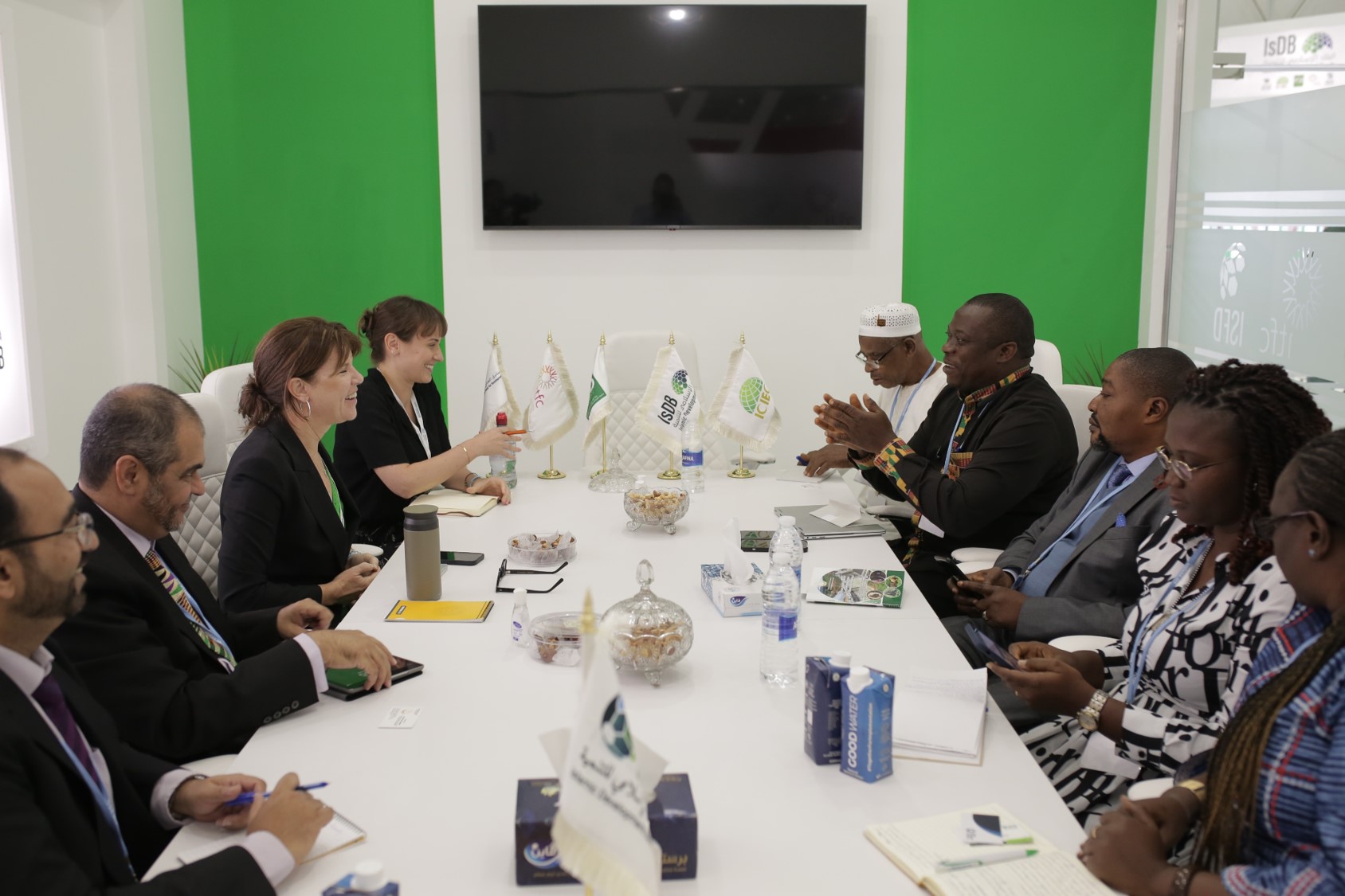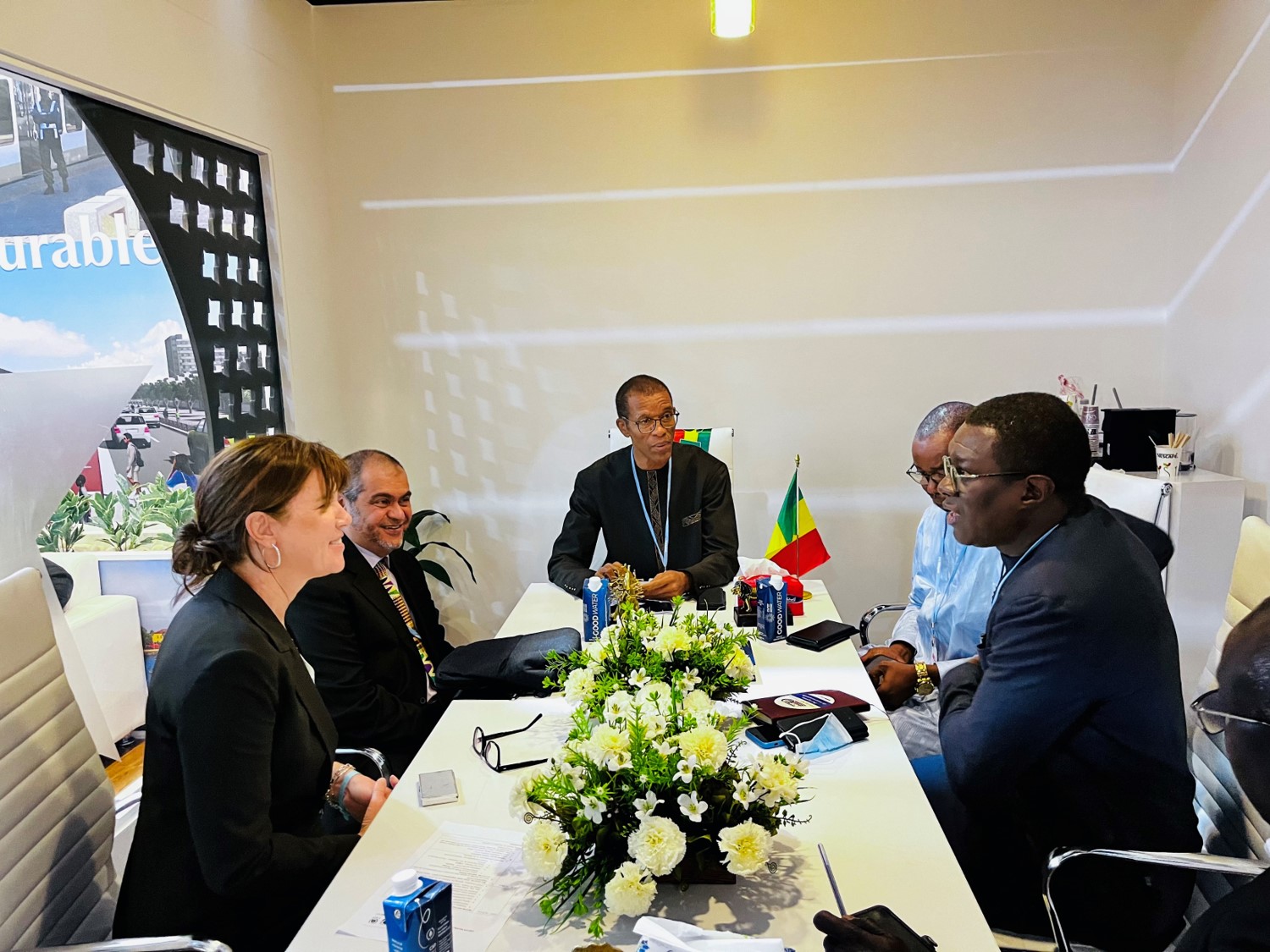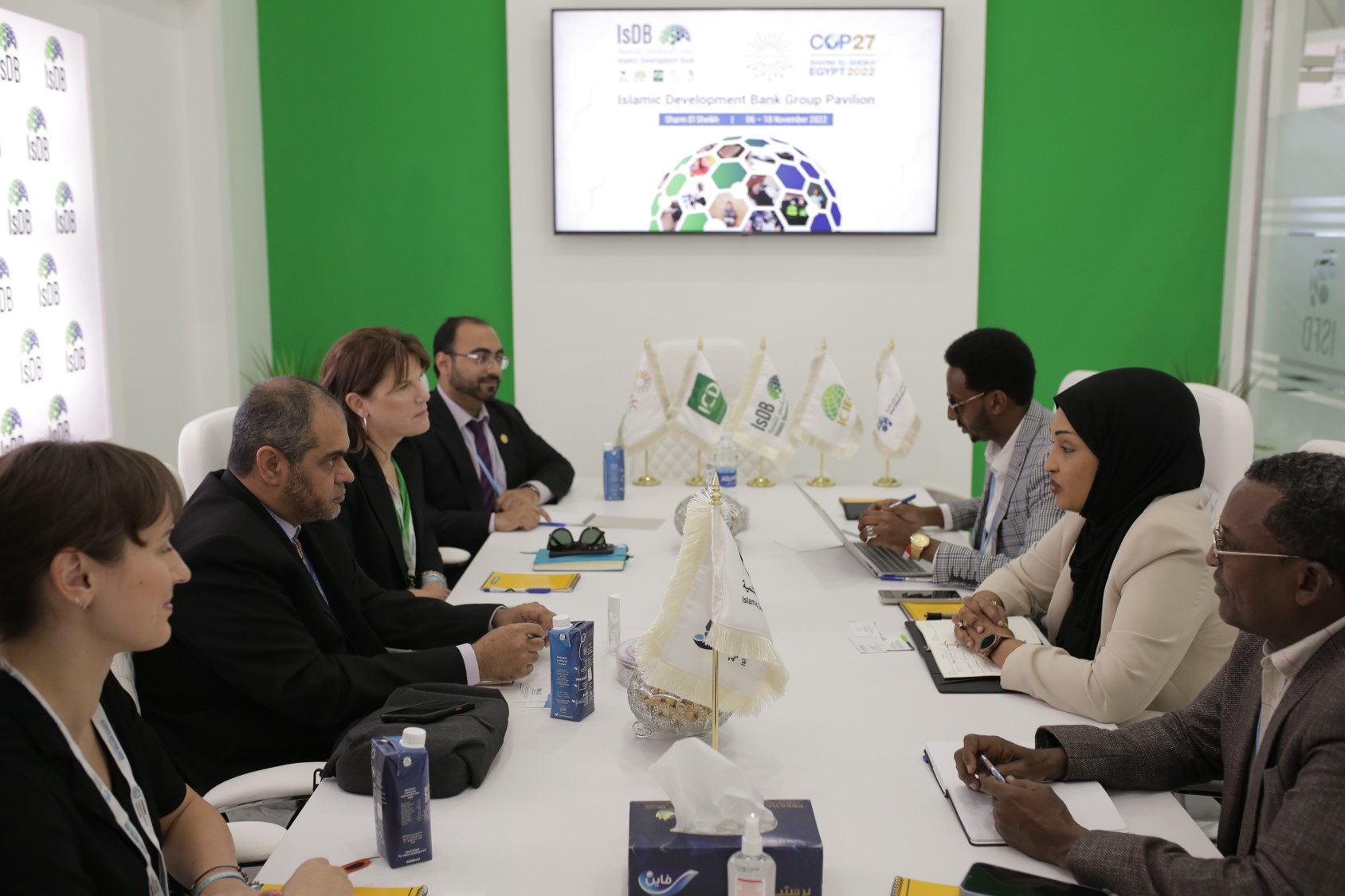Member Login
COP27: Member Countries Seek IsDBI’s Support to Leverage Technology-Enabled Climate Data



Bilateral_Advisor PM Guinea Bilateral_Minister Senegal Bilateral_Minister Somalia
Jeddah, Kingdom of Saudi Arabia, 13 November 2022 - The Islamic Development Bank Institute (IsDBI) and the Global Partnership for Sustainable Development Data held a series of bilateral meetings with representatives of IsDB member countries on the sidelines of the 2022 United Nations Climate Change Conference (COP27) to discuss technology-enabled data solutions in order to tackle climate change related crises.
High-level delegations from Somalia, Senegal, and Guinea met with the IsDBI’s Dr. Areef Suleman,Director of Economic Research and Statistics, and Mr. Syed Faiq Najeeb, Senior Islamic Finance Specialist, as well as Global Partnership’s Dr. Claire Melamed, Chief Executive Officer, and Ms. Lucy Pearson, Senior Strategy and Development Manager.
The member county delegations called on the IsDBI and the Global Partnership to support the development of modern data systems to enable timely, evidence-based policy making in their quest for achieving the Sustainable Development Goals (SDGs) in general and to address climate and environment-related challenges in particular.
Led by H.E. Amb. Khadija Almakhzoumi, Minister of Environment and Climate Change, the Somali delegation highlighted that data is a priority for their newly established Ministry as they looked forward to strong support from IsDBI and Global Partnership in various areas. These include accessing modern data systems, developing institutional capacity, building appropriate monitoring dashboards, and supporting cross-cutting community awareness on climate and environment data.
The Senegalese delegation was led by H.E. Mr. Alione Ndoye, Minister of Environment, Sustainable Development and Ecological Transition, who commended the impact of the earlier support provided by IsDBI and Global Partnership to Senegal. The previous collaboration enabled Senegal to assess the conditions of its agriculture, deforestation, and water quality and facilitated access to satellite technology to speed up impact assessment and decision-making by more than half the time. H.E. Mr. Ndoye requested additional support, particularly in the areas of fisheries, livestock and agriculture and recommended that, given the cross-cutting nature of the collaborative work, the initiative should be expanded to include other ministries as well as the private sector.
For its part, the delegation of Guinea, led by Mr. Fassou Thea, Advisor to the Prime Minister, requested data support in the areas of disaster planning, watershed management, agriculture, and food production.
The impetus for the call of member countries for additional support is the high impact delivered by the collaboration between IsDBI and Global Partnership in promoting quality data systems in support of evidence-based policymaking. Such multilateral collaborations on advancing innovative data sources areimperative to drive accelerated achievement of the SDGs in time for the 2030 Agenda.
###
About the IsDB Institute
The Islamic Development Bank Institute (IsDBI) is the knowledge beacon of the Islamic Development Bank Group. Guided by Islamic economics and finance principles, the Institute is mandated to lead the development of innovative knowledge-based solutions to support the sustainable economic advancement of IsDB Member Countries and Muslim communities worldwide. Established in 1981 as the Islamic Research and Training Institute (IRTI), the Institute was renamed in April 2021 to better align it with the IsDB’s emerging priorities and to enable the Institute to effectively lead innovative knowledge-based solutions for sustainable development.
For more information, please visit: www.isdbinstitute.org





































